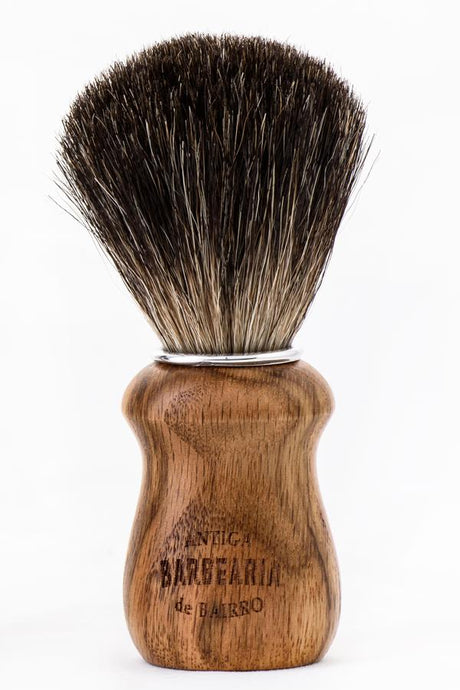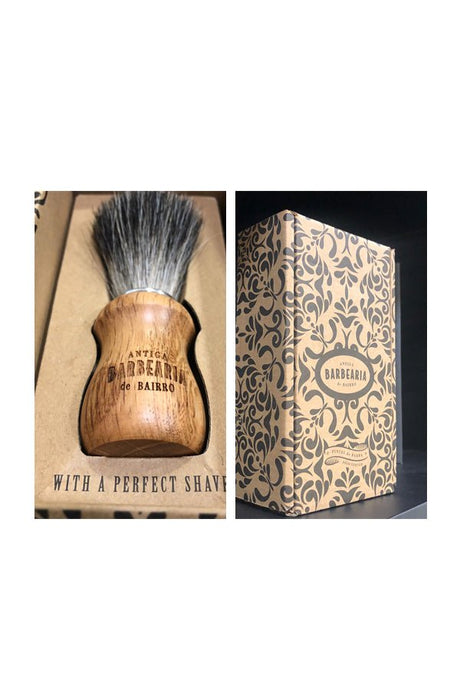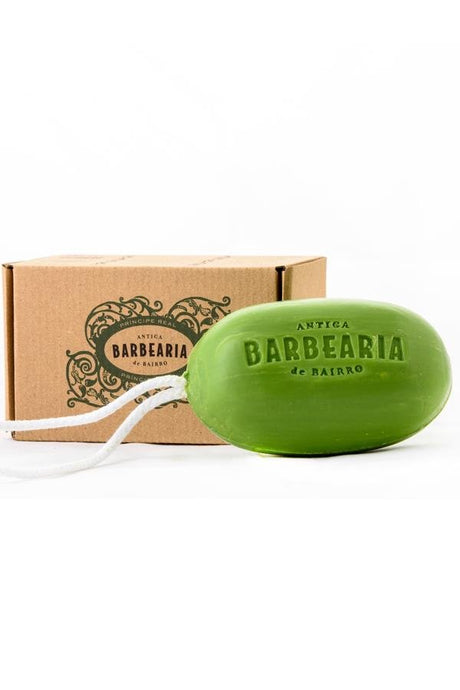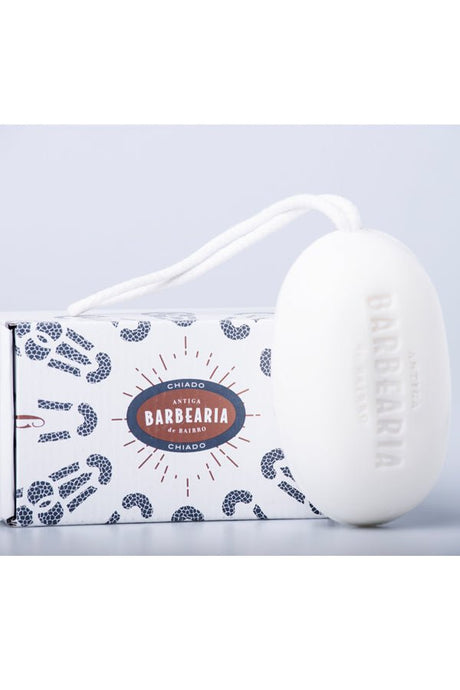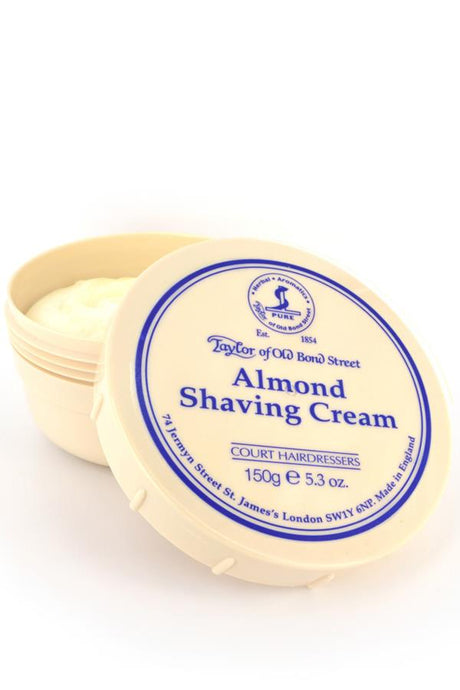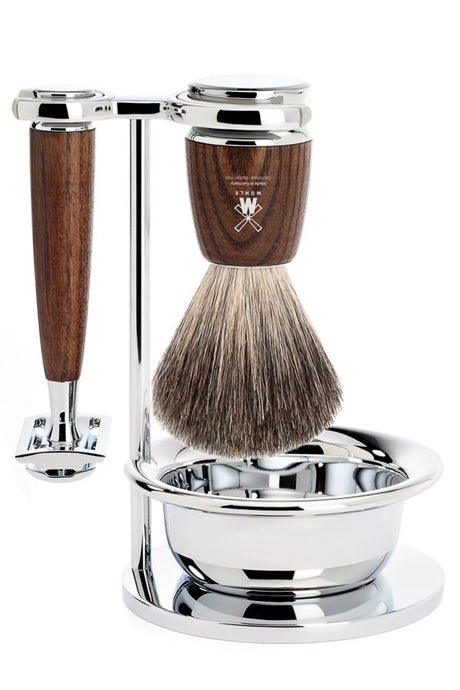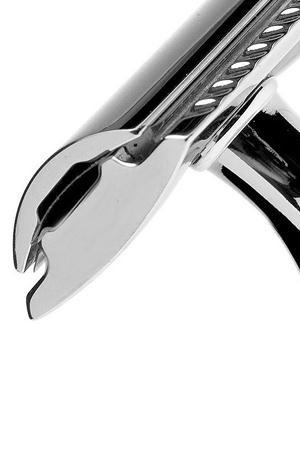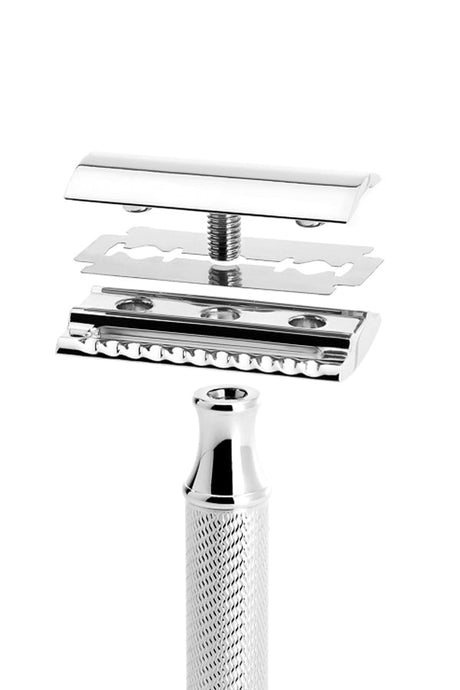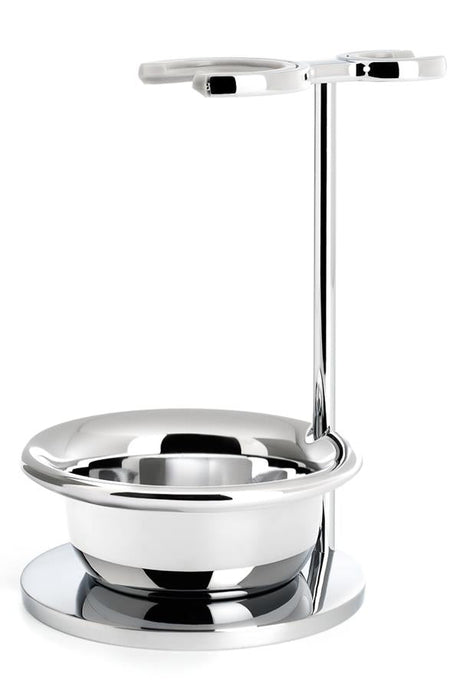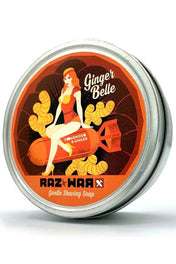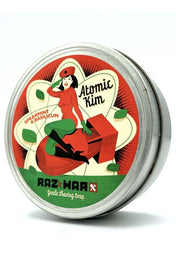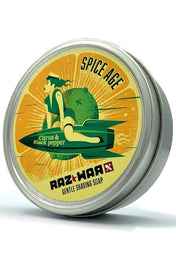As you know, we always keep a close eye on what is going on with our customers and what the latest trends and developments are. Of course we are concerned with shaving, beards and men's grooming. We would like to share this with you so that you can always join in the conversation over the coffee machine at work or at a birthday party. As you have come to expect from us, you don't have to do anything at all. You always have to decide for yourself whether or not you want to participate in a trend.
Artisan shaving products
Many men love delicious and beautiful artisanal products, such as traditionally brewed beer and regional cheeses and sausages. It is not without reason that you increasingly encounter these products on supermarket shelves. But what is artisanal? It involves small-scale manual (local) production and the use of as many pure and natural ingredients or components as possible. Products are made in a traditional way with a lot of attention to quality.
Old-school wet shavers appreciate beautiful, traditionally produced shaving items, such as straight razors , safety razors and shaving brushes made of badger hair or synthetic hair . A traditional shaving soap , shaving cream and accompanying after shave also belong in that list. We often hear from our customers that once you have shaved with these shaving products, you will not go back to regular drugstore shaving soaps and after shave balms.

In recent years, more and more artisanal shaving brands have emerged, such as Le Pere Lucien, Wickham Soap Co. and De Scheermonnik at the shaving market. In another blog article we talked about the enormous popularity of American brands: Ariana & Evans, Stirling Soap Co. and Zingari Man. This often concerns an enthusiastic entrepreneur who develops and produces shaving products himself with a lot of dedication and passion. There are also some small family businesses that make shaving soaps on a large scale and using traditional methods, such as Martin de Candre, Saponificio Varesino and Saponificio Bignoli.
The charming thing about these brands is that there is a lot of experimentation with ingredients and scents. Many shaving soaps, shaving creams and aftershave products have very distinct aromas. Some manufacturers, such as Biolijf and Meissner Tremonia , use vegetable essential oils for their scents, such as lavender oil, mint oil and cedarwood oil. Most craft brands use synthetic fragrance oils. These fragrances are added to the shaving product in very small quantities.
The following ingredients are commonly used in shaving soaps or shaving creams:
- animal tallow, such as pork and beef fat
- lanolin (sheep wool grease)
- castor oil
- shea butter
- coconut oil
- jojoba oil
Some important features of artisanal shaving products:
- small-scale (manual) production;
- natural animal fats and/or vegetable oils;
- strongly perfumed;
- scented with synthetic fragrance oils;
- shaving creams have a strong composition;
- sustainable packaging, such as glass and recycled plastic;
- striking design of the packaging.
Artisan shaving brands
Below are some shaving brands per country:
The Netherlands
- Organic body
- The Scheermonk
Germany
- Meissner Tremonia
France
- E&S Rasage Traditionnel
- Le Pere Lucien
- Martin de Candre
Italy
- Saponificio Bignoli
- Saponificio Varesino
United Kingdom
- Phoenix & Beau
- Wickham Soap Co.
USA
- Ariana & Evans
- Stirling Soap Co.
- Zingari Man


